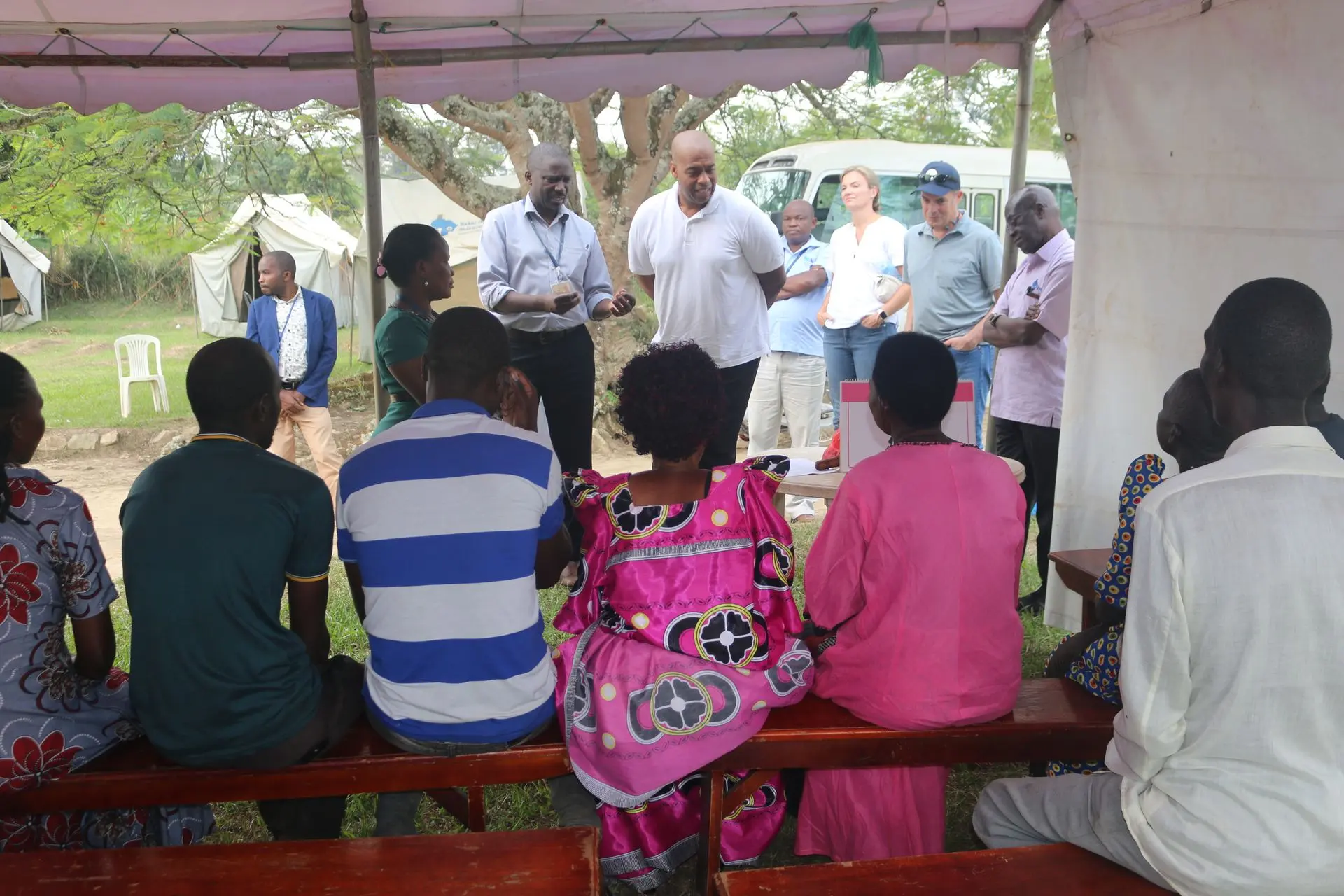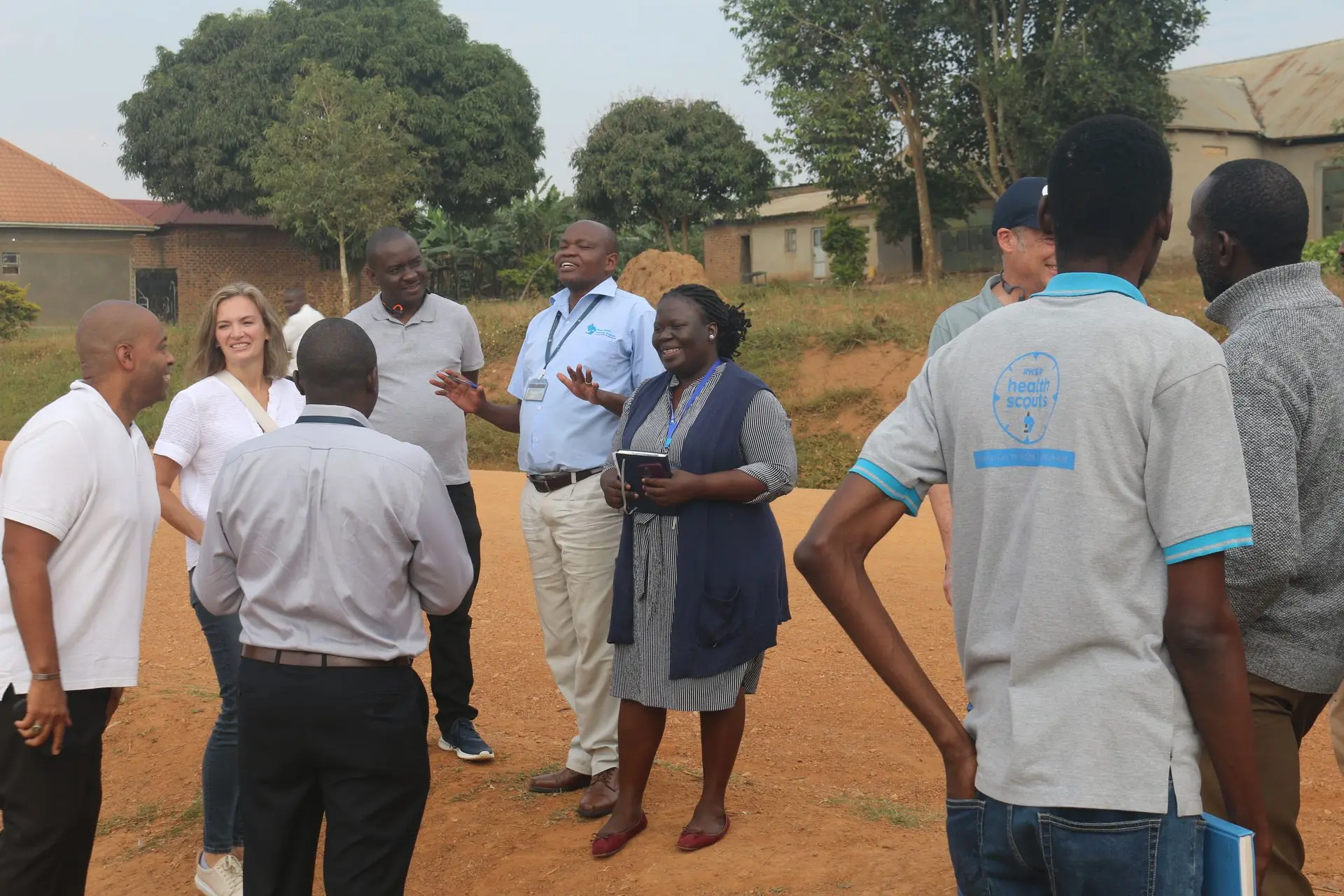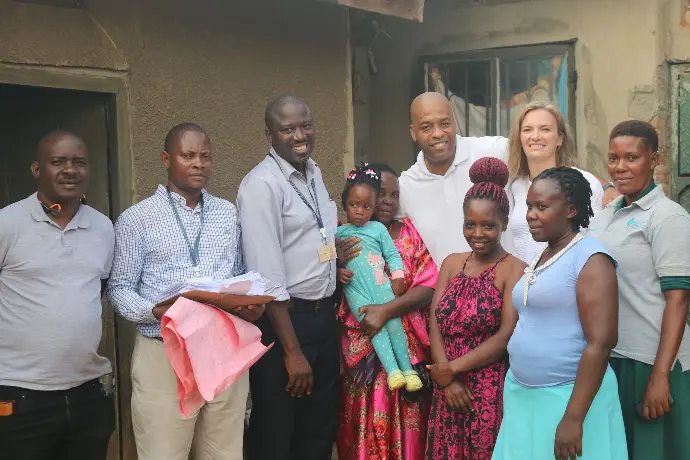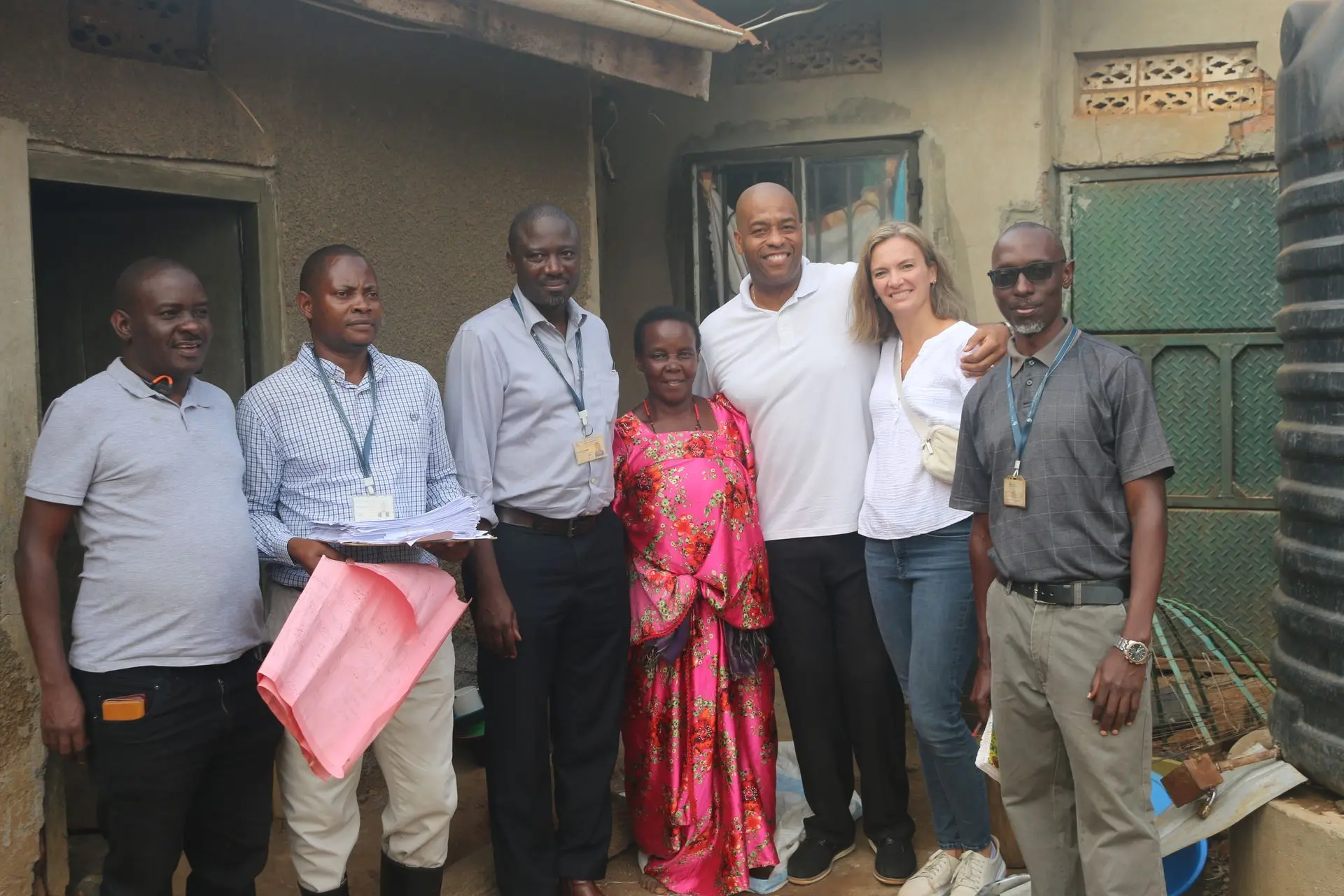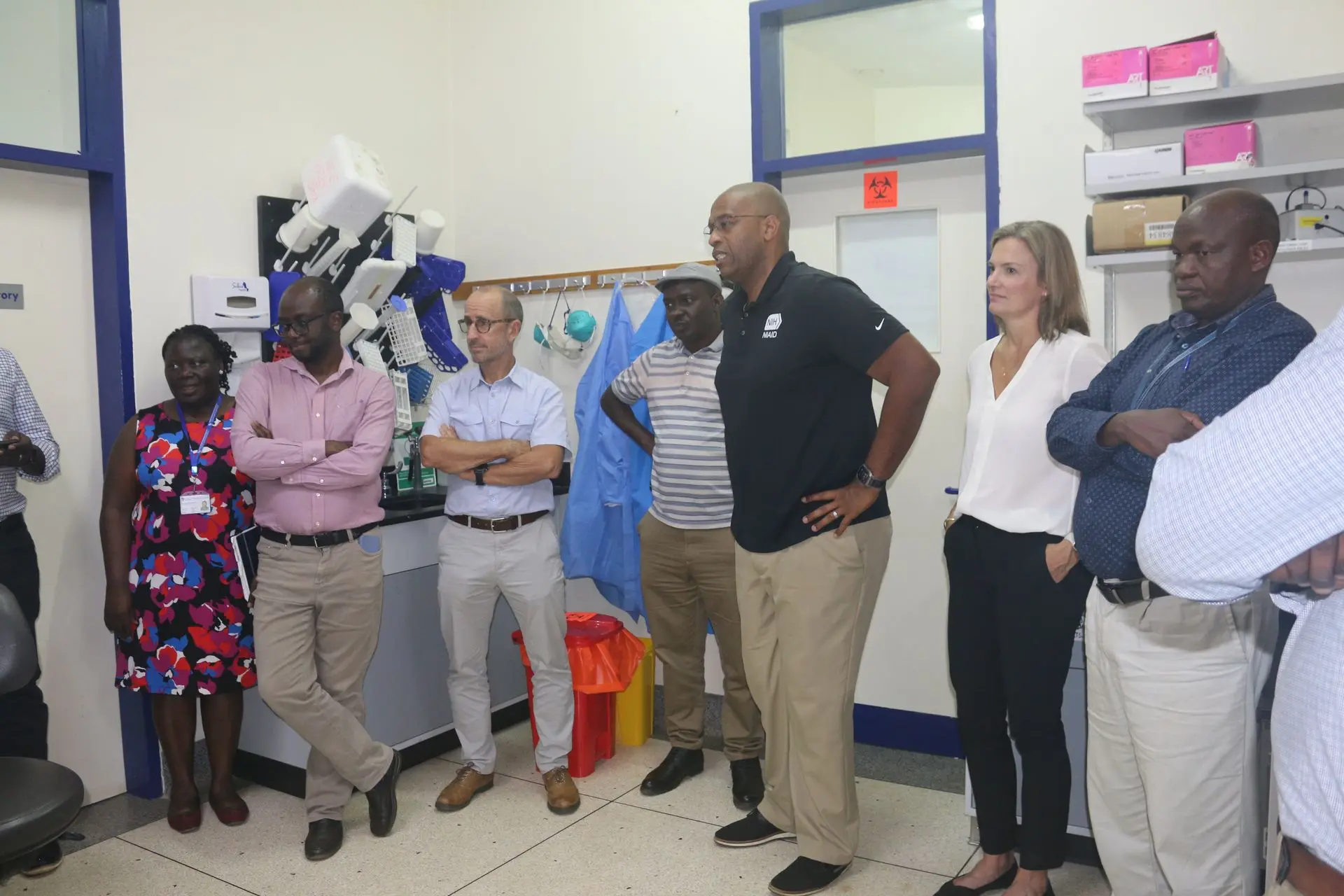We recently had the honor of hosting a distinguished delegation from the National Institutes of Health (NIH) and the National Institute of Allergy and Infectious Diseases (NIAID) at the Rakai Health Sciences Program (RHSP). The team was led by James Cherry, Associate Director and Chief of the Research Technology Branch, and included Karylnn Noble, Communications and Outreach Lead, Christopher Whalen from the Office of Cyber Infrastructure and Computational Biology, the team was hosted by Steven Reynolds, NIH Director in Uganda, and the RHSP Senior Management Team among other RHSP members. Their visit was part of an onsite inspection aimed at exploring opportunities to elevate data management practices within RHSP.
The highlight of the visit was an engaging discussion centered around the Rakai Community Cohort Study (RCCS), where the NIH/NIAID team and RHSP leadership exchanged ideas on leveraging digital innovation to improve data collection processes. The transition from traditional paper-based systems to a comprehensive digital platform is a priority for RCCS, as it stands to streamline operations and boost the efficiency of data collection. This move towards digitisation is expected to not only make fieldwork more effective but also to enhance the quality and accessibility of data for scientific research.
During their visit, the NIH/NIAID team had the opportunity to hear from our field teams about the unique challenges faced in data collection. Many of our RCCS field staff work under extreme weather conditions, often in remote areas where data collection is further complicated by the use of bulky, paper-based systems. The difficulties involved in handling and storing large volumes of physical documents can lead to delays, inaccuracies, and lost data, which impacts the integrity and timeliness of research outputs.
The benefits of digitising data collection extend beyond immediate operational improvements. For RHSP, this transition has profound implications for scientific research. By enhancing data accuracy and enabling more efficient data handling, a digital platform will provide researchers with higher-quality data that can be analysed in real-time. This will allow for a more agile research process, where insights can be derived and acted upon quickly. Additionally, with improved data accessibility, RHSP can foster greater collaboration with research partners and institutions. The availability of up-to-date, high-quality data will strengthen partnerships, attract new research opportunities, and position RHSP as a leader in the field of health research in Africa.
The NIH/NIAID visit has underscored the importance of embracing innovation in data management. By investing in digital solutions, RHSP is not only enhancing its operational capabilities but also laying the groundwork for future advancements in scientific research. We are excited to move forward with these developments and continue our journey toward a fully digitised research environment.
